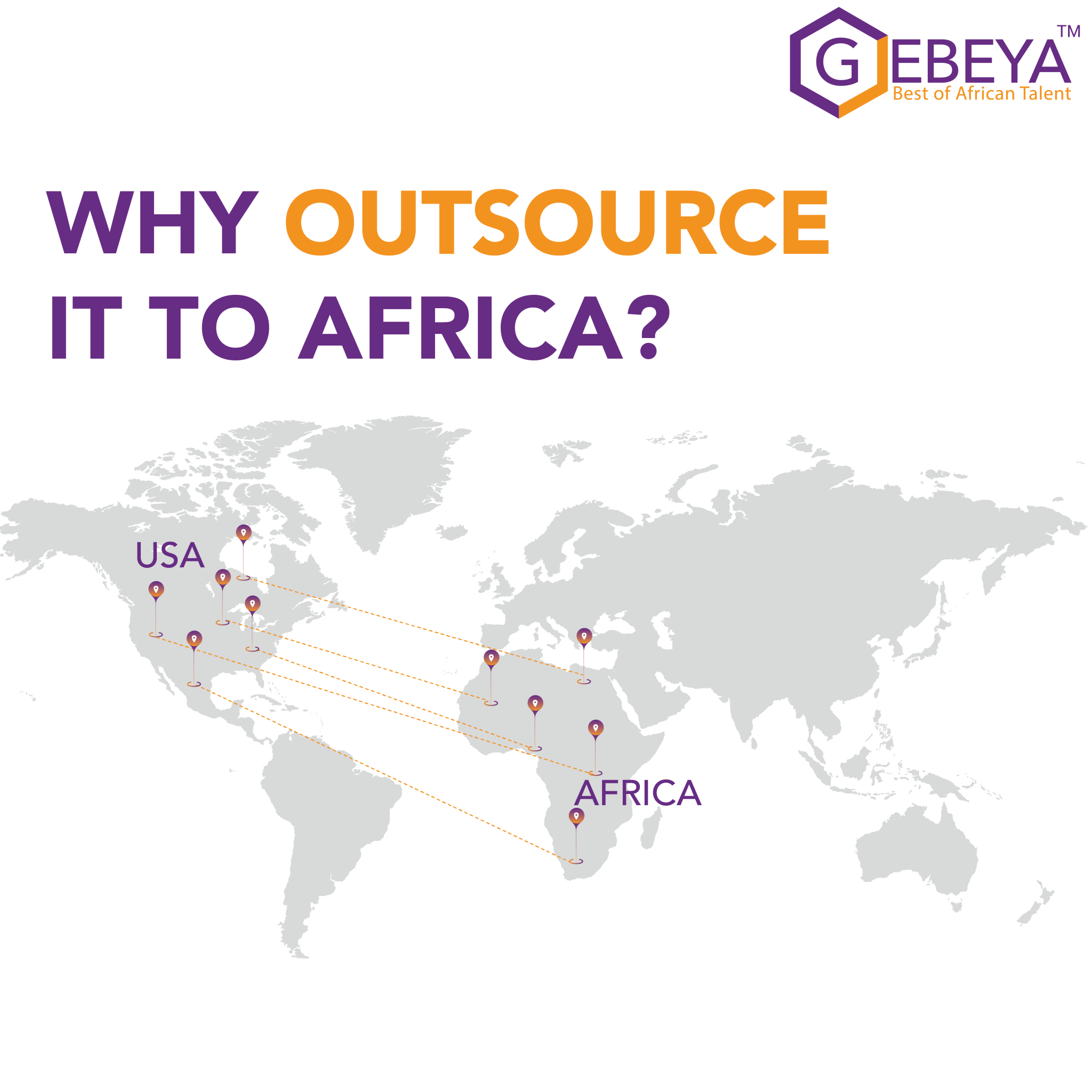Why Outsource IT To Africa?
The global market has become increasingly competitive for tech talent. Startups and SMEs seeking to simplify their structure, improve customer service, and develop products faster urgently need to outsource, such as software engineers. Companies must also strategically source tech talent and solutions in a cost-effective manner. Traditional outsourcing hubs like India, the Philippines, and countries in Central and Eastern Europe have become saturated and costly, according to Empower Africa. A search for the next hub for IT tech talent has emerged in the past few years, as the war for talent has hit a fever pitch.
Global organizations must shift their focus to the next untapped reservoir of tech-savvy digital professionals: Africa. Africa’s high population of educated, but unemployed or underemployed make it a powerhouse of eager and able tech talent waiting to be unleashed. A key opportunity hides amidst statistics like the fact that 450 million people will join the working age population, but only 100 million jobs will be available for them by 2035 (The World Bank’s The Africa Competitiveness Report). Africa has no shortage of tech talent; rather a supply/ demand imbalance.
With so many elements unique to the African tech sector landscape, both talent and tech companies outside of the continent stand to greatly benefit.
1. No Shortage of Skilled Software Engineers
Among that youthful population are thousands of university graduates every year including 700,000 software engineers, according to a report from Google and IFC, e-Conomy Africa 2020. Five countries dominate the pipeline of tech talent, according to that same report. These include Egypt, Kenya, Morocco, Nigeria, and South Africa. That same report projected a population size of 2.5 billion by 2050, running the scalability of software engineers poised for remote work off the charts.

Access Africa's Best Talent

Access Africa's Best Talent
2. Robust Multilingual Abilities and Global Communication Skills
In Northern Africa, tech talent, including software engineers, can speak Arabic to converse with companies in the Middle East. With countries like Morocco and Egypt being geographically close to Europe, potential travel between the two continents makes them even more attractive as prospective outsourcing partners.
3. A Thriving Tech Ecosystem
Africa’s recent abundance of unicorns is evidence of its maturing tech ecosystem, and the potential of its tech talent. These include Andela’s $200 million Series E raise. More than $4.3 billion was raised by African startups in 2021, a 150% year-on-year increase, according to data from Africa: The Big Deal. This venture capital poured into solutions as diverse as fintech, healthtech, and agritech. For companies outside of Africa looking to leverage the skills of the continent’s capable software engineers, the competition is heating up within Africa itself.
Ventureburn rounded up 10 “must-attend” tech conferences on the continent, including Africa Tech Summit (Nairobi, Kenya), Africa Tech Week (Cape Town, South Africa), and West Africa Com (Dakar, Senegal). But the breadth of tech summits and communities is much more robust. Hundreds of startup hubs and communities thrive in major cities across the continent, such as Metta and iHub in Kenya, Co-Creation Hub in Nigeria, MEST Africa in Ghana, and pan-African AfriLabs.
4. High Quality at Affordable Rates
Thanks to the explosion of mobile money platforms like Safaricom’s M-PESA, and remittances startups like Taptapsend, businesses also have multiple avenues they can leverage to make cross-border payments in local currencies with ease. And with the right partner or platform like Gebeya, businesses don’t have to handle the administrative logistics of contracting or payments at all.
5. Reasonable Competition for African Software Developers
With companies like Andela shifting their focus from an Africa-first model to global expansion—the company’s model shifted from creating a pipeline of trained African software engineers and placing them at jobs training to a focus on senior engineers anywhere in the world—supply has eclipsed local demand in markets like Lagos, Nigeria.
6. Time Synchronicity and Accessibility
The 2020 Google/ IFC report found that nearly half of the continent’s population will live in cities by 2025 (only three years away), making digital-native, tech-savvy African talent more accessible than ever. And, with African tech talent dispersed across six time zones, countries like Senegal and France and South Africa and the United Kingdom can easily collaborate with little time or language difference.
7. Growing Infrastructure and Internet Penetration
The growing IT infrastructure in the region also makes it a great offshore outsourcing destination. Many countries like Madagascar and Kenya enjoy fast internet speeds, and fast-growing telecom networks and increased access to technology has created an enabling environment for digital and remote work.
Concluding Thoughts on the Value of Leveraging African Software Engineers
If you believe Africa is the future of tech talent, you are already too late. The revolution has already begun.

